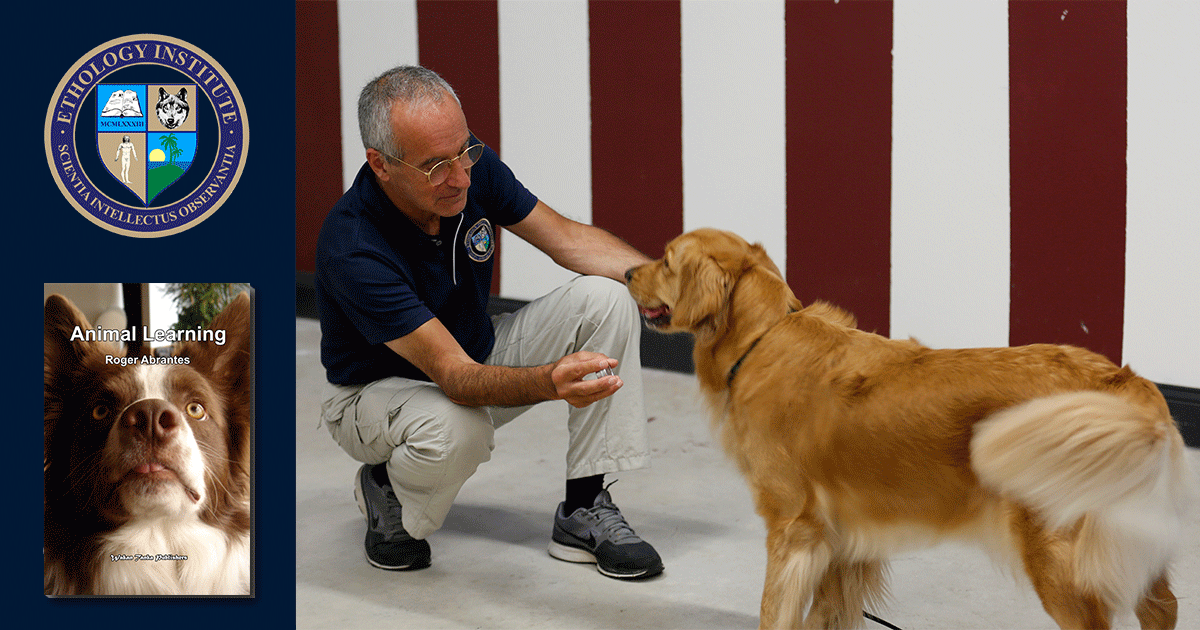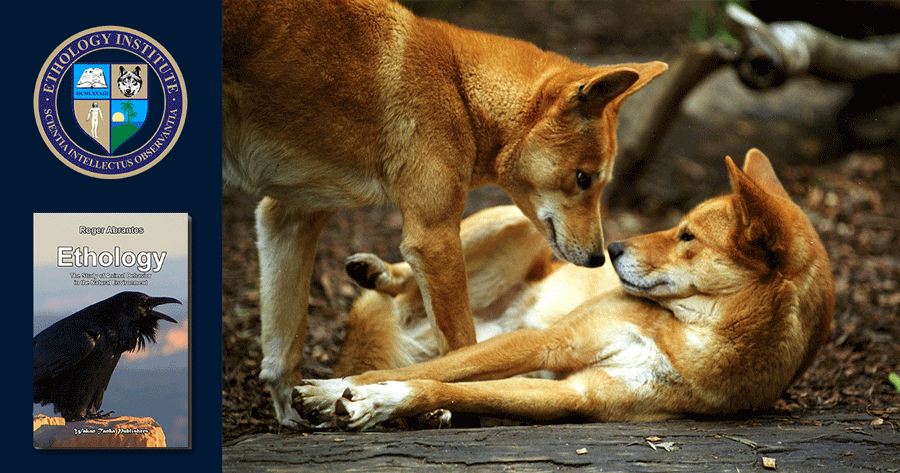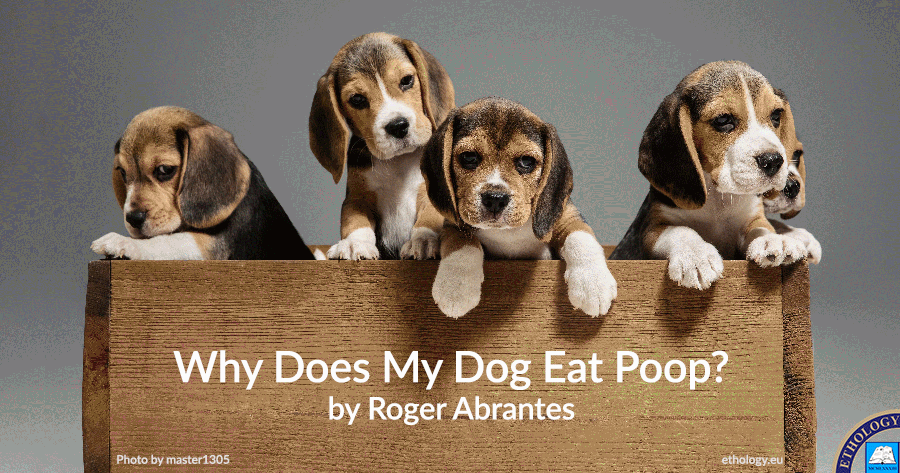Why do dogs eat their poop? While the scientific community cannot provide a conclusive answer yet, we find on the Internet one horrendous explanation after the other. A 101 course in evolution could have prevented these nonsensical accounts, and the exasperating rebuttals of perfectly valid reports because of blatant ignorance.
Now you see why we offer our course ‘Evolution’ free of charge.
I will give you two examples of how a little knowledge of evolutionary biology can help you analyze statements and avoid making ridiculous claims or implausible statements.
Why does my dog eat its poop? Here are some popular answers I found on the net.
Explanation 1: The dog knows that fewer predators will pay it any attention if there is no evidence of his having been around.
Is this probable? First, adult canines in nature are the object to predation by any other species besides humans. They defecate where they can. Sometimes they use it to scent mark their territory, which is anything but concealing it. Defining one’s territory is essential for survival.
The only occasion where concealing occurs is when canine mothers eat their pups’ feces while still in the den. The function of this behavior is to keep the den clean, free of parasites, and probably also odor-free. Natural selection seemingly favored this behavior because it conferred the advantages of decreasing the odds of the youngsters succumbing to disease and reducing the den’s scent signature, helping it to remain concealed. The latter would only have been an advantage where predators with a reasonable sense of smell would share the same environment. For example, it might have been beneficial for the Canis lupus lupus sharing their habitat with bears (family Ursidae).
Conclusion: It is unlikely that dogs eat their poop to conceal their whereabouts from predators, except mothers consuming their pups’ feces.
Explanation 2: He (the dog) knows that removing the evidence means no punishment for inappropriate elimination.
Is this probable? To be true, it requires that the dog associates the feces with the punishment. How likely is it that the dog associates its act of defecation with retribution from the owner arriving at the scene 1-8 hours later?
Natural selection has favored associations broadly spaced in time, but only for vital functions, like eating poisonous substances. There is evidence that the organism keeps a kind of memory of anything that made it sick, even many hours later. However, we cannot envisage any situation in which it would be unconditionally and evolutionarily advantageous for an animal to associate defecating with a non-lethal punishment inflicted by some other animal. Natural selection would only favor it if its achieved benefits would grossly exceed its costs. Insecure animals do keep a low profile, also restricting their urination and defecation to less-prominent locations, but not by eating it.
Conclusion: It is possible to condition an association between feces and punishment, but I doubt we can teach any dog to eat its feces to avoid punishment. There is no evidence that coprophagia (from the Greek κόπρος copros, “feces” and φαγεῖν phagein, “to eat”) of own feces has been evolutionarily advantageous.
When analyzing a behavior, the evolutionary biologist asks:
- What condition in the environment would favor the development of such a trait?
- What circumstances would support its propagation into the population?
- Do the benefits of such a trait outweigh its costs, both short and long-term?
Why do dogs eat their poop, then? I have found a few plausible explanations but none conclusive, yet. Therefore, my answer must be, “I don’t know.”
Fear not to suspend judgment until you possess conclusive evidence. An honest “I don’t know” is one thousand times preferable to idle chit-chat and tales of cobblers wags.
Keep up seeking the truth—whatever that might be. For a starter, take at least the 101-course in evolution. It will help you right away to sort out the worst blunders.
Featured image: Pups in a box (the “home” den)—canine mothers (in wolves, African wild dogs, and domestic dogs) eat their youngsters’ poop when they are still in the den. The function of this behavior is to keep the den fairly clean, free of parasites, and probably also odor-free (Photo by master1305).
Featured Course of the Week
Animal Learning Animal Learning studies how animals learn the various behaviors they display. We review all the fundamental principles of learning that you need to master for training animals or implementing behavior modification.
Featured Price: € 168.00 € 98.00

Learn more in our course Ethology. Ethology studies the behavior of animals in their natural environment. It is fundamental knowledge for the dedicated student of animal behavior as well as for any competent animal trainer. Roger Abrantes wrote the textbook included in the online course as a beautiful flip page book. Learn ethology from a leading ethologist.

